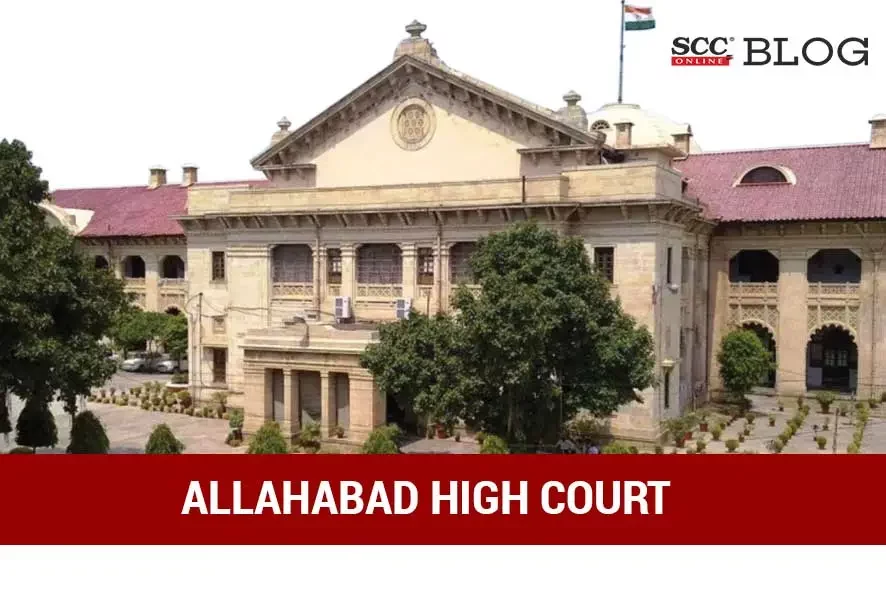Allahabad High Court: In a writ petition by Tehsil Bar Association (‘TBA’) against UPPCL charging commercial rates of electricity from them, the division bench of Surya Prakash Kesarwani and Anish Kumar Gupta*, JJ. has held that the activities/profession of an Advocate is a not a commercial activity, attracting the commercial rate of electricity consumption as prescribed in rate schedule LMV-2, as applicable in the State of U.P. approved by the U.P. Electricity Regulatory Commission. The Rate Schedule LMV-2, which is applicable for the commercial activities, cannot be applied for the electricity supplied to the Lawyers Chambers. The Lawyers chambers / offices shall be charged only under LMV-1 Domestic category as the lawyers neither do any trade or business nor are involved in any commercial activity. Further, it held that the UP Power Corporation Limited (‘UPPCL’) cannot discriminate between the electricity supply to the advocates’ chambers in different court compounds, in the same State, where the rate schedules are approved by the same authority.
Background:
The members of TBA are the advocates engaged in a legal practice and all the advocates have got their chambers at the Tehsil Sadar campus with valid electricity connection installed by UPPCL. As per the tariff schedule for Financial Year 2016-17 available on the website of Power Corporation, the residential premises of professionals such as advocates including their chambers are treated as domestic. After the grant of electricity connection in the chambers of such advocates the UPPCL started charging the electricity charges at commercial rates which were objected by TBA and since their grievances were not redressed, they filed the writ petition, wherein it was observed that the tariff schedule for the Financial Year 2016-17 clearly states that LMV-1, domestic rates would be applicable to the chambers of professionals such as advocates, doctors, artists, consultants etc. It was observed that the information supplied on 13-08-2017, it was stated that the electricity connection installed in the chambers of advocates in District and Sessions Court, Ghaziabad, were issued under domestic category and the electricity charges are charged upon as per the tariff rates LMV-1 as determined by the UP State Electricity Regulatory Commission.
Issues:
• Whether the activities/profession of an advocate is a commercial activity, which will attract the commercial rate of electricity consumption?
• Whether the Rate Schedule LMV-2, which is applicable for the commercial activities, can be applied for the electricity supplied to the Lawyers Chambers?
• Can the respondents discriminate between the electricity supply to the advocates’ chambers in different court compounds?
Analysis:
The Court perused rate schedule LMV-1 for the Financial Year 2022-23, rate schedule LMV-2 for non-domestic light, fans and power, rate schedule LMV-4 light and power of public and private institutions, and said that it is apparent that the activities of advocates and professionals or the public institutions like Judiciary do not find place in any of the rate schedule. Clause 13 of the general provisions regarding rate schedule for Financial Year 2022-23 provides for consumers of light, fan and power (excluding motive power loads) not covered under any rate schedule or expressly excluded from any LMV rate schedule will be categorized under LMV2.
The Court said that Section 3(1) of the Electricity Act, 2003 enshrines a duty upon the Central Government to formulate the tariff policy in consultation with the State Government. Section 3(3) of Electricity Act, 2003 further provides for review and revision of the National Electricity Policy and tariff policy by the Central Government from time to time with the consultation of the State Governments and the Authority. Section 86 of the Electricity Act empowers the State Commission to determine the tariff for generation, supply, transmission and wheeling of electricity. While determining the tariff policy, the State Commission shall be guided by the National Electricity Policy, National Electricity Plan and Tariff Policy published under Section 3, as provided in Section 86(4).
The Court said that LMV2 is applicable for non-domestic purposes like all type of shops including Patri Shopkeepers, Hotels, Restaurants, Private Guest House, Private Student Hostel, Marriage House, Show Rooms, Cinema, Banks, Cyber Cafe etc. The non-domestic purposes as indicated in rate schedule LMV2, the profession of a lawyer is not covered under the non-domestic purpose as has been illustrated in this rate schedule. To bring the lawyers’ office within the categories of non-domestic purposes, the activity must be established to be of similar nature as illustrated in rate schedule under category LMV-2.
Thus, the Court viewed that the lawyers’ chambers would not come within the definition of non-domestic purpose as illustrated in rate schedule LMV-2 as the illustrative activities indicate the activities of commercial nature. The legal profession in catena of cases has been held to be non-commercial activity and it is not a trade or business. By the Rules framed by the Bar Council of India (‘BCI’), the Lawyers are also prohibited from actively participating in any trade or profession.
The Court said that an Advocate or a legal practitioner is duty-bound to act as an officer of the Court. An advocate is prohibited to do any business or involve in any commercial activity, and they are also restrained by the rules framed by the Bar Council of India from advertising their professional activities. He cannot stipulate a fee contingent on the result of the case nor he can agree to share the proceeds of the case. All these are the features which categorically distinguish the legal profession from the trade or business. Therefore, the legal profession cannot be called as the commercial activity, trade or business.
[Tehsil Bar Association v. UP Power Corporation Limited, 2023 SCC OnLine All 566, Order dated 03-08-2023]






